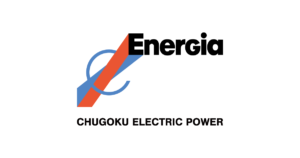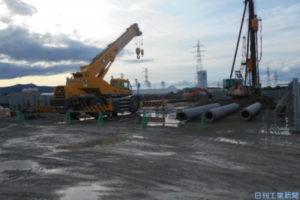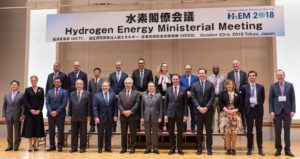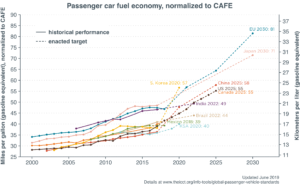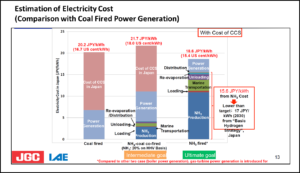Japan
IHI Breaks Ground on Hydrogen Research Facility
Japanese capital goods manufacturer IHI Corporation announced last month that it has started construction of a 1,000 square-meter hydrogen research facility in Fukushima Prefecture. The facility will be an addition to IHI’s Green Energy Center in Soma City which was launched in 2018. One of the Center’s original focuses is the production steps of the green hydrogen supply chain using solar electricity to power developmental electrolyzers. The new facility will focus on hydrogen carriers, including ammonia and methane (via “methanation” of carbon dioxide), that can be used in the logistics steps of the supply chain.
Japan, U.S., E.U. Agree to Cooperate on Hydrogen
On June 18, Japan, the United States, and the European Union released a joint statement on “future cooperation in hydrogen and fuel cell technologies.” Represented, respectively, by the Ministry of Energy, Trade, and Industry (METI), the Department of Energy (DoE), and the Directorate-General for Energy (ENER), the jurisdictions pledged “to accelerate the development of sustainable hydrogen and fuel cell technologies in the world.” A central point of agreement in the statement is “the importance of reducing the cost of hydrogen.”
Fuel Economy Standards, and the Roles of Ammonia
In the news this week, California and four automakers (BMW, Ford, Honda and VW) signed an agreement on fuel economy standards, rising 3.7% per year to about 50 MPG in 2026. This agreement, as well as previous California and Federal standards, give automakers flexibility to meet the standards with incentives and credits for new technology such as electric, hybrid, and alternative fuel vehicles.
The Evolving Context of Ammonia-Coal Co-Firing
Co-firing ammonia in a coal-fueled boiler, a concept under active development in Japan, received positive notice in the International Energy Agency’s recently published report, The Future of Hydrogen. So far serious scrutiny of the co-firing concept is limited to Japan. In the fullness of time, the demand side of the concept may take root in other countries. The supply side, however, could have near-term global relevance.

